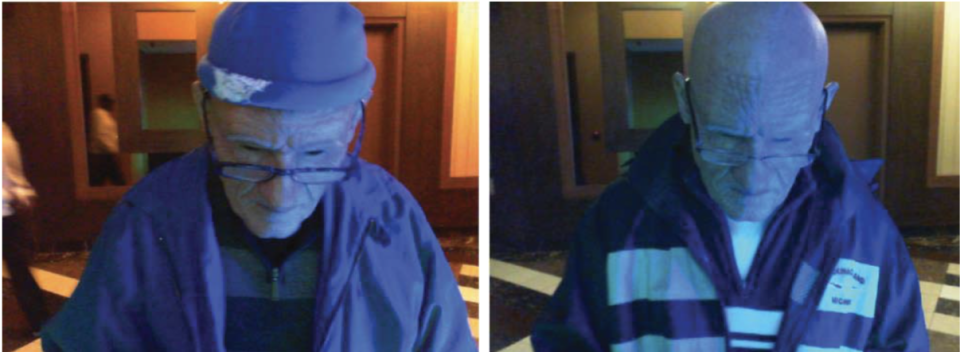Michigan man who wore prosthetic face masks pleads guilty in $125K casino fraud scheme
DETROIT — A Michigan man pleaded guilty Tuesday in federal court for his role in concocting an elaborate fraud scheme that involved prosthetic face masks.
John Christopher Colletti, 56, pleaded guilty to wire and identity fraud for a plot that enabled him to swindle more than $125,000 from unsuspecting gamblers at multiple casinos in two states. He faces up to a maximum of 20 years in prison on the wire fraud charge and a minimum of two years on the identity fraud charge.
His modus operandi included donning a prosthetic face mask that made him resemble an older white male before hitting casino kiosks to withdraw thousands in cash. In other instances, Colletti wore hats, glasses and surgical masks to disguise himself, according to court documents.
"Colletti stole the identities of dozens of innocent people, dragging them all into his criminal scheme," Timothy Waters, special agent in charge of the FBI’s Detroit Field Office, said in a statement. “The impacts of identity theft are serious and far-reaching for victims, and the FBI will work hard to ensure anyone who engages in this type of conduct is held accountable.”
Colletti first gained investigators' attention in May 2019 when 10 instances of identity theft were found at the MGM Grand Casino Detroit, totaling $98,840. State investigators established a common suspect by reviewing closed-circuit television footage.
In one instance, Colletti was seen approaching MGM Grand Detroit on foot wearing a prosthetic mask, blue jacket, dark visor cap, blue jeans, and sunglasses on top of his visor cap and carrying a messenger type bag. In just 36 minutes, he was able to make 15 transactions totaling $30,000 at various kiosks inside the casino.

After his transactions, Colletti is seen taking a cab outside of the casino to Greektown then walking to a restaurant and using its restroom, according to court documents. About 10 minutes later, security footage shows him leave the restaurant without the disguise — instead wearing a white T-shirt, blue jeans and carrying a black plastic bag.
Colletti was arrested in Mayetta, Kansas, on March 12, 2020, for identity theft at the Prairie Band Casino after security footage showed him — wearing a straw hat, glasses, and using a mobility walker — withdrawing $20,000, requiring he present his Social Security number for reporting reasons. When approached by security, who told him to go to the cashier's cage, Colletti instead went to the bathroom and took off his disguise.
After he left the casino, security found clothes, a mobility walker, a Nissan car key, two Michigan driver’s licenses, and approximately $11,000 cash in the restroom. The licenses had the information of actual Michigan residents with altered photos and sticky notes on the back with victims’ Social Security numbers and telephone numbers.
Video: This is the first smoke-free casino on the Las Vegas strip
To operate casino kiosks, which allow users to exchange tickets, break bills, and process jackpots, gamblers are required to insert their driver’s license, and then enter the last four digits of their Social Security Number and the last four digits of their telephone number. According to investigators, Colletti targeted VIP Preferred Program casino patrons as victims by purchasing their personal information on the internet and then had fraudulent driver’s licenses manufactured in the victims’ names.
Following his arrest, a search warrant was obtained and executed by Prairie Band Potawatomi Tribal Police on Colletti's rental car, a Nissan Versa. Inside the vehicle, they found four prosthetic face masks, flash drives, 83 driver’s licenses, 14 insurance cards in multiple names, six open water diver certification cards, two Binghamton University staff ID cards, 19 players cards from various casinos — the majority from MGM Grand Casino.
Individual victims were paid back by Global Payments Gaming Services, the manufacturer of the casino kiosks targeted by Colletti. As part of his plea deal, Colletti will be required to pay the full $125,740 to GPGS.
Colletti's sentencing is slated for July 7.
Contact Miriam Marini at mmarini@gannett.com
This article originally appeared on Detroit Free Press: Michigan man who wore prosthetic masks pleads guilty in casino scheme

